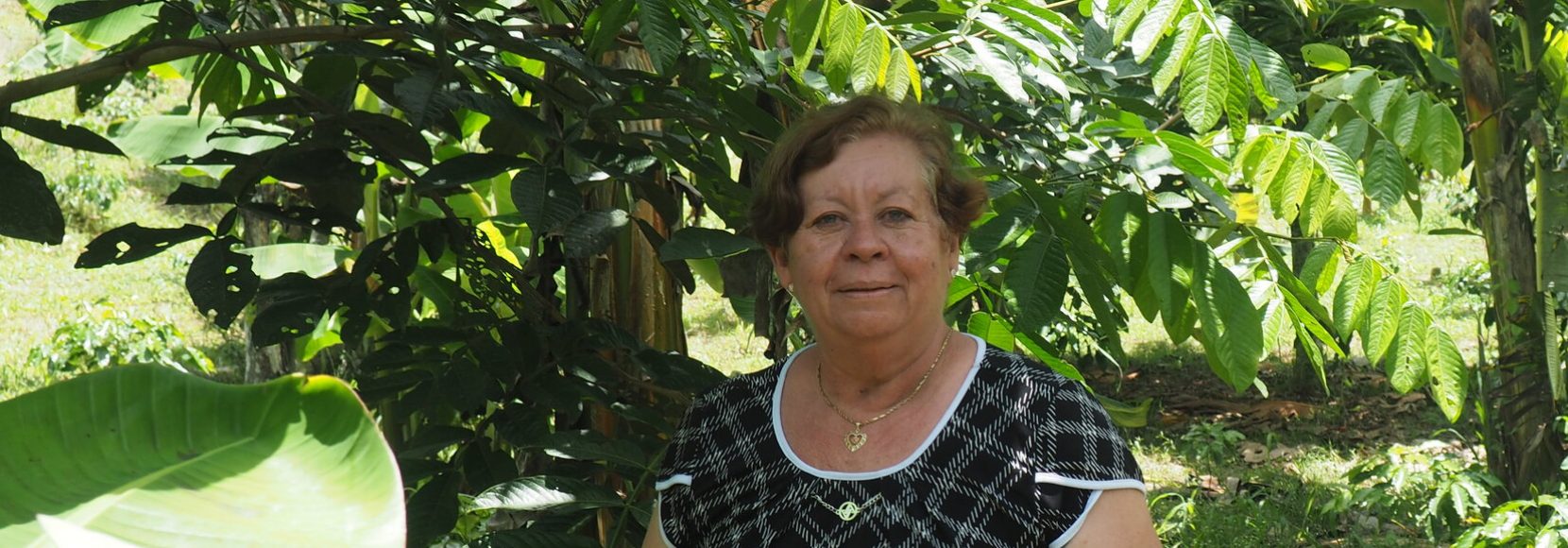
A Third-Generation Farmer in Puerto Rico Reaps a New Harvest and Hope After Hurricane Maria
While the challenges of being a woman coffee farmer affected Agueda Ortiz Velez, she couldn’t have imagined how Hurricane Maria would test her overall resilience.
It’s 5 a.m. in Lares, Puerto Rico. A 61-year-old farmer wakes from her slumber and prepares for the day ahead. After making breakfast, she speaks with one of her employees about the work they’ll accomplish that day and then takes her granddaughter to school. These are the first few hours of most days for Agueda Ortiz Velez, a farmer who is a part of the third generation to work in the coffee-growing business in her family.
“I believe farmers and coffee growers are not only important, but essential in Puerto Rico,” says Agueda. “Because without agriculture, there is no food.”
The Challenges for a Woman Farmer
Agueda has been a coffee farmer for the past 30 years and has watched the industry change over time. While her family has grown coffee for generations, she did not intend for her own daughter to follow in her footsteps. “When my daughter Zuleyka was born, the last thing I wanted her to be was a farmer,” says Agueda. “Why? Because it is difficult. It is a field of work with many challenges. We sow not knowing the outcome of the harvest.”
Agueda also knew the challenges of being a woman in the coffee farming industry. “My generation suffered through a lot of difficulty within agriculture because it is seen as a business for men. It was a big challenge for me,” she says. “There were very few women who worked in agriculture, and this caused many challenges. We were not paid equally, not valued for our work. And this made it very difficult.”
While the challenges of being a woman coffee farmer affected Agueda, she couldn’t have imagined that this wouldn’t be the greatest test to her overall resilience.
How Hurricane Maria Destroyed the Coffee Industry in Puerto Rico
Five years ago, Hurricane Maria made landfall on the American island of Puerto Rico, causing the deaths of over 3,000 people and billions of dollars in damage. And it destroyed 80% of the island’s coffee trees, devastating the livelihoods of hundreds of farmers, including Agueda.
“When Hurricane María arrived, I was right here at home with my mother and my son,” says Agueda. “It was a very difficult moment to think that everything we had worked for and achieved during many years…it’s something I can’t find the words for. It was a feeling of impotence, sadness to see that everything would be destroyed.”
“We didn’t have water or power. We could not go out,” she says. “It was a very frustrating time, but we need to have hope.”
How A Coffee Farmer Found Hope After Devastation
In 2019, Agueda joined an initiative called Revivamos Nuestro Café, a partnership between TechnoServe, Nespresso, the Hispanic Federation, the Rockefeller Foundation, and Colibri Foundation to help farmers in Puerto Rico to rebuild the coffee industry after Hurricane Maria.
Partners donated two million coffee seeds for farmers to start replanting their farms–and with support from Nespresso, TechnoServe began training farmers in growing even more, better quality coffee than before. The training included lessons on regenerative agriculture, farming techniques that improve the local environment while maintaining or improving crop productivity. These techniques also improve farms’ resilience against future climate threats like hurricanes.
“TechnoServe, with its support, has explained things to us farmers in ways that we understand, showing how we can still work the land with less resources like we have now,” says Agueda. “They have provided options.”
Today, Agueda continues to work the land of her farm and encourages other women to join the recovering coffee farming industry. “Women who work in agriculture are seen differently,” she says. “It was not like this in my time.”
How You Can Help Coffee Farmers Recovering from Hurricane Maria
In the face of seemingly insurmountable challenges, women farmers like Agueda have pushed through and are now reaping better harvests and the hope that comes with them. “Having hope is saying, ‘I can do it. I will keep on and continue. I can make it,’” says Agueda. “That is what TechnoServe has allowed us to have and feel again. Understanding that even though it will be difficult and challenging, it can be done. Even when hurricanes are not our only challenge. We have droughts and floods, but we must never lose that hope that we can continue and we will make it through.”
Help TechnoServe continue to give hope to farmers in Puerto Rico and around the world. Give $100 today.





